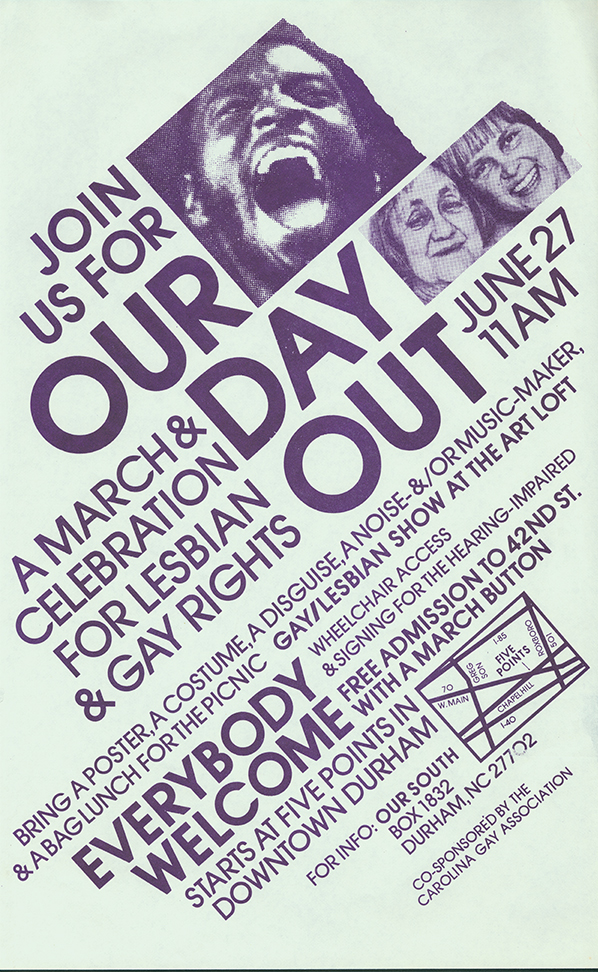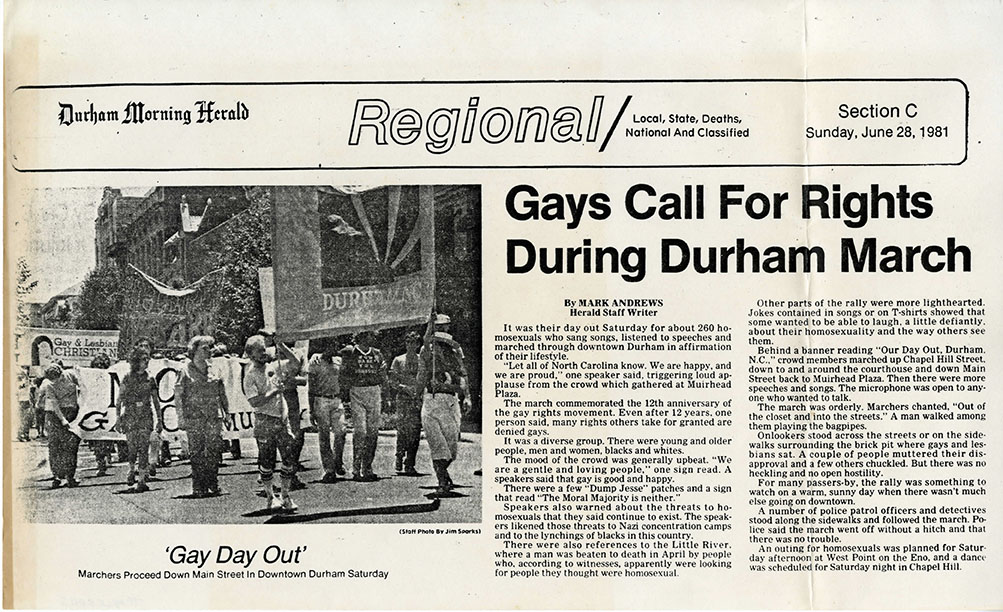Our Day Out: The LGBTQ Community Steps Out of the Shadows
Durham’s LGBTQ community used political activism to propel their fight for liberation into the public eye in the early 1980s. They were moved to action by two hate crimes: the murders of the Greensboro Five at a Communist Workers Party anti-Klan demonstration in 1979, and the anti-gay assault and murder of Ronald “Sonny” Antonevitch in April 1981 which led to a vigil at the courthouse. Debbie Swanner and David Ransom organized “Our Day Out,” North Carolina’s first gay and lesbian march a few months later as a response to these hate crimes. On June 27, 1981, three hundred marchers courageously stood together as a community. They started at Five Points Plaza in downtown Durham, traveled up Chapel Hill Street, looped around the courthouse, and marched back down Main Street, singing, chanting, making speeches, and picnicking along the way.
Attendance at the march was risky. Being an out queer person could lead to the loss of a job, housing, even the custody of children. The looming threat of Klan violence led to an intense police presence, and some marchers wore paper bags over their heads to avoid recognition. But many of the LGBTQ marchers were experienced political activists who had been engaged in movements for other groups’ rights—Antonevitch’s murder simply invigorated them to speak up for their own community. Despite the risk, the march turned out to be a fully peaceful celebration of Durham’s LGBTQ community. “Our Day Out” paved the way for future LGBTQ pride events in Durham, evolving into Durham’s first annual Pride March in 1986—a tradition that continues today.
Learn more here:
https://www.ncdcr.gov/blog/2018/06/18/pride-month-triangle-pride

